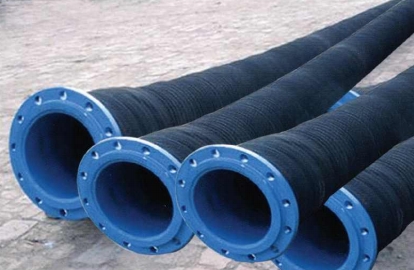Rubber Tube: A Flexible Solution for Countless Applications
2025-04-07
Rubber tubes are among the most versatile and widely used components in modern industries. Known for their flexibility, durability, and resistance to various elements, rubber tubes play a critical role in everything from automotive systems to medical devices. Whether you're dealing with fluid transfer, air supply, or insulation, rubber tubing provides a reliable and cost-effective solution.
What Is a Rubber Tube?
A rubber tube is a hollow, cylindrical product made from natural or synthetic rubber materials. It is designed to carry fluids, gases, or other substances from one location to another while withstanding a variety of physical and environmental conditions. Rubber tubes can be soft and flexible or reinforced for added strength, depending on the intended application.
Types of Rubber Used
Rubber tubes are made from several types of rubber, each offering unique properties:
- Natural Rubber: Offers excellent flexibility and resilience, often used for low-pressure applications.
- EPDM Rubber: Highly resistant to heat, weather, and ozone, making it ideal for outdoor use.
- Silicone Rubber: Non-toxic and temperature-resistant, widely used in the medical and food industries.
- Nitrile Rubber: Resistant to oil and fuel, commonly found in automotive and industrial systems.
- Viton Rubber: Known for its chemical resistance, used in harsh chemical environments.
Key Features and Benefits
Rubber tubes are popular for many reasons. Some of their key features include:
- Flexibility: Rubber tubing bends easily, making it perfect for tight spaces or complex routing.
- Durability: With proper formulation, rubber tubes can resist cracking, tearing, and abrasion.
- Chemical Resistance: Many rubber materials are resistant to oils, acids, and solvents.
- Temperature Tolerance: Some rubber tubes perform well in both hot and cold conditions.
- Sealing and Insulation: Rubber provides excellent sealing properties and can also act as an electrical insulator.
Common Applications
Rubber tubing is used across various industries for both everyday and specialized tasks:
- Automotive: Fuel lines, coolant hoses, and brake systems.
- Medical: IV tubes, respiratory devices, and surgical tools.
- Industrial: Air and fluid transfer systems in machinery.
- Food and Beverage: Sanitary tubing for liquid handling.
- Construction: Seals, gaskets, and protective coverings for wiring.
Choosing the Right Rubber Tube
When selecting a rubber tube, it's important to consider several factors:
- Material Compatibility: Ensure the rubber is suitable for the substance it will carry.
- Temperature Range: Choose a material that can withstand the expected operating conditions.
- Pressure Rating: Make sure the tube can handle the required pressure without deforming.
- Size and Wall Thickness: Select dimensions based on flow rate and system design.
Conclusion
Rubber tubes are essential components in countless systems around the world. Their ability to adapt to different conditions and perform reliably makes them a favorite choice for engineers, manufacturers, and technicians alike. Whether you need a high-performance solution for a complex industrial setup or a simple tube for home use, rubber tubing delivers a perfect combination of flexibility, durability, and performance.
As industries continue to evolve, the demand for specialized rubber tubing will only grow. By understanding the properties and capabilities of rubber tubes, you can make better decisions for your projects and applications.



